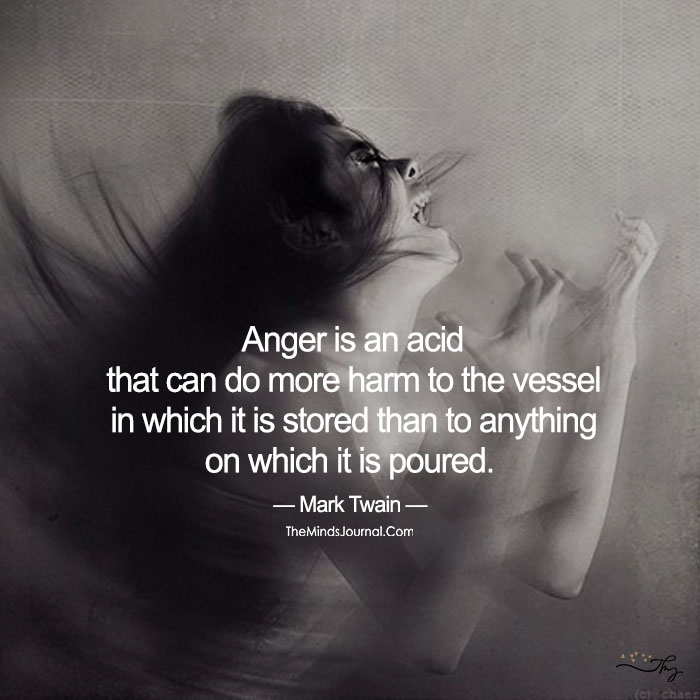Anger is an emotion that ranges from mild annoyance to intense rage, which is why it is important to learn how to control anger, rather than letting it control us. Anger management is not about blaming others or trying to suppress your anger, it’s about expressing anger in a positive way that will be honest and productive.
Our world is in the midst of an emotional meltdown. People are restless, volatile, our tempers about to blow. There was a Newsweek cover story, “Rage Goes Viral” describing how from Tunisia to Egypt a wave of rage is rocking the Arab world to create revolutions.
Rage is also prevalent in our everyday lives: There’s road rage, office rage, supermarket rage, and even surfer’s rage. Why is rage so rampant? What is the solution?
In my book Emotional Freedom, I explore the differences between good and bad anger. Anger can be a healthy reaction to injustice such as cultures fighting to free themselves from repressive regimes.
Anger rallies people. It creates energy and motivation to rebel against dysfunctional political or social systems. It also motivates groups to go on strike say, for higher, well-deserved wages or to defend human rights. On a personal level, anger can be good if it’s expressed in a focused, healthy way rather than using it to punish or harm others.
Your Body’s Reaction To Anger

As a psychiatrist, I know that anger is intense, primally physical. Let’s say a colleague double-crosses you in a business deal. You feel angry. Your amygdala stimulates adrenaline.
You get an energy rush that rallies you to fight. Blood flows to your hands, making it easier to grasp a weapon. Your heart pumps faster. You breathe harder. Pupils dilate. You sweat. In this hyperadrenalized state, aggression mounts. You may raise your voice, point accusingly, stare him down, grimace, flail your arms around, verbally intimidate, barge into his personal space.
Taken to an extreme, you could literally be driven to knock him out or beat him up. In a pure survival-oriented sense, you want to dominate and retaliate to protect yourself and prevent further exploitation. Anger is one of the hardest impulses to control because of its evolutionary value in defending against danger.
What factors make us susceptible to anger? One is an accumulation of built-up stresses. That’s why your temper can flare more easily after a frustrating day. The second is letting anger and resentments smolder.
When anger becomes chronic, cortisol, the stress hormone, contributes to its slow burn. Remaining in this condition makes you edgy, quick to snap. Research has proven that anger feeds on itself. The effect is cumulative: each angry episode builds on the hormonal momentum of the time before.
For example, even the most devoted, loving mothers may be horrified to find themselves screaming at their kids if they haven’t learned to constructively diffuse a backlog of irritations. Therefore, the powerful lesson our biology teaches us is the necessity of breaking the hostility cycle early on, and that brooding on the past is hazardous to your well-being.
For optimal health, you must address your anger. But the point isn’t to keep blowing up when you’re upset rather–it’s to develop strategies to express anger that are body-friendly. Otherwise, you’ll be set up for illnesses such as migraines, irritable bowel syndrome, or chronic pain, which can be exacerbated by tension. Or you’ll keep jacking up your blood pressure and constricting your blood vessels, which compromises flow to the heart.
Read: The Damaging Effects Of Negativity On Your Health
A Johns Hopkins study reports that young men who habitually react to stress with anger are more likely than their calmer counterparts to have an early heart attack, even without a family history of heart disease. Further, other studies have shown that hostile couples who hurl insults and roll their eyes when arguing physically heal more slowly than less antagonistic partners who have a “we’re in this together” attitude.
Still, repressing anger isn’t the answer either. Research also reveals that those who keep silent during marital disputes have a greater chance of dying from heart disease or suffering stress-related ailments than those who speak their minds.
How To Control Anger: 4 Practical Ways
Here are some strategies from “Emotional Freedom” to productively cope with anger in daily life. 4 tips to diffuse anger.
1. When you’re upset, pause, and slowly count to ten.
To offset the adrenaline surge of anger, train yourself not to lash back impulsively. Wait before you speak. Take a few deep breaths and VERY slowly, silently, count to ten (or to fifty if necessary). Use the lull of these moments to regroup before you decide what to do so you don’t say something you regret
2. Take a cooling-off period.
To further quiet your neurotransmitters, take an extended time-out, hours or even longer. When you’re steaming retreat to a calm setting to lower your stress level. Reduce external stimulation. Dim the lights. Listen to soothing music. Meditate. Do some aerobic exercise or yoga to expel anger from your system.
3. Don’t address anger when you’re rushed.
Make sure you have adequate time to identify what’s made you angry. A Princeton study found that even after theology students heard a lecture on the Good Samaritan, they still didn’t stop to help a distressed person on the street when they thought they’d be late for their next class. Thus, allotting unhurried time to resolve the conflict lets you tap into your most compassionate response.
Read: 8 Strategies to Work Through Anger and Resentment
4. Don’t try to address your anger when you’re tired or before sleep.
Since anger revs up your system, it can interfere with restful sleep and cause insomnia. The mind grinds. Better to examine your anger earlier in the day so your adrenaline can simmer down. Also being well-rested makes you less prone to reacting with irritation, allows you to stay balanced.
The goal with anger is to own the moment so this emotion doesn’t own you. Then you can mindfully respond rather than simply react. You’ll have the lucidity to be solution-oriented and therefore empower how you relate to others.
Adapted from Dr. Judith Orloff’s NY Times bestseller Emotional Freedom: Liberate Yourself From Negative Emotions and Transform Your Life (Three Rivers Press, 2011)
Written By: Judith Orloff, MD
Originally Appeared On: Dr. Judith Orloff










Leave a Reply